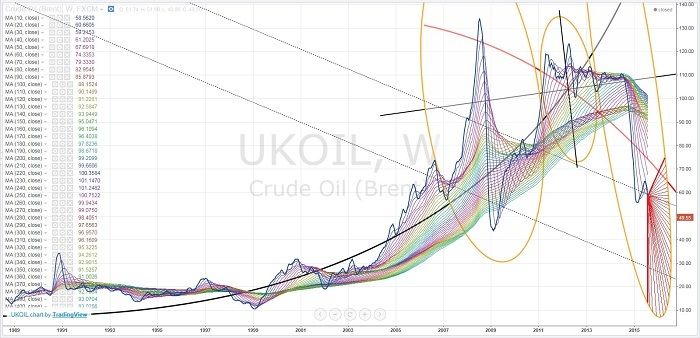The volume of (theoretically) recoverable reserves grew when the oil price was high. Tar sands and fracking were added to production.
Yes - the high price, combined with the technology making fracking work, for relatively cheap prices.
Then the price collapsed and all that new production is now not profitable to produce, along with the increased volume of (theoretically) recoverable reserves. If the oil price does not recover soon, all of the gains you talk about will never materialize.
If the supply doesn't keep up with the demand, the price will have to rise (unless further advances in technology make it cheaper to extract). That's basic economics. The oil is still there - it's not going anywhere unless we pump it out of the ground. What is different between now and 10 years ago is that now it is possible to recover that oil at reasonable prices.
And what's different between now and a year ago is that Saudi Arabia is declining to keep the price artificially high. As long as they choose to do that, oil prices will stay low and it will be plentiful. After that, it will go up a little and fracking will expand. Either way, the oil is there and will be recovered.
Increasing efficiency does not produced energy.
Increasing efficiency is in many ways better than producing energy. It's like money in the bank. What it does for the oil situation, though, is stretch the reserves and reduce the slope of the eventual decline.
All of the substitutes for oil you mention cost money...
Yes...
...and the economy is already starting to fail.
No, not even in the slightest. A minor stock market correction, like the dozens before it, is not a failing economy. You've also been looking at little bits of negative or not positive enough news as the start of the "collapse" for 2.5 years -- you've been wrong every time and you are wrong now. After this dissipates, you'll disappear for a few months, only to return when the next little bump in the road happens, because this one, this time, really, really, believe me, is the one. You'll be wrong then too.
After enough repetitions of this pattern, we will eventually get to the next recession (there's always a next recession). Finally!, you'll be able to see real, actual negative news and an actually decreasing economy. For a few months, you'll have something real to hang your hat on.
...But then the economy will recover from that one too (and you'll claim it is only temporary).
This pattern will continue for as long as you have the stomach for being so badly wrong all the time.
Saying we have decades left is begging the question. The Etp model is currently performing perfectly. The model forecasts that we don't have the luxury of decades to replace oil.
Says you, who by your own admission is only
guessing about how the ETP model works.
If the EROEI of oil falls to 1:1 by 2021, as the Etp model forecasts...
It won't. It can't. There's way too much oil available, at a way better EROEI than that.
Will you at least admit that, if the Etp model is valid, we are pretty screwed?
Certainly. Also, if an asteroid the size of Texas hits us and Bruce Willis isn't available to go after it, we're screwed too. Neither is very likely though, there isn't much point in such things unless you are planning to make a fictional movie about it.


